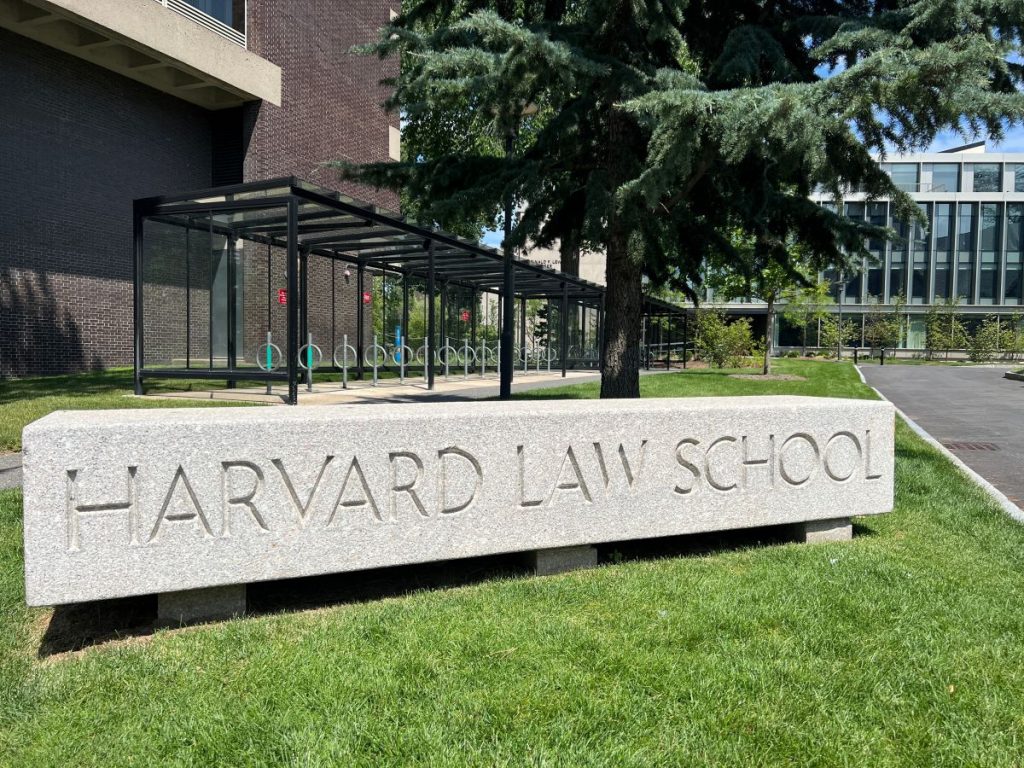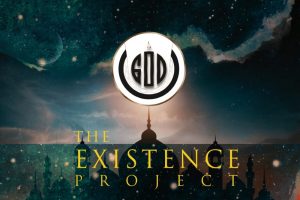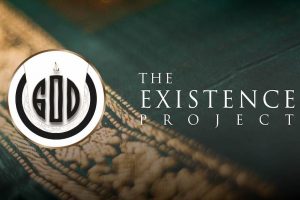
© Shutterstock
Ayesha Mahmood Malik
The eternal quest in search of life’s grandest purpose and for a ‘higher being’ can be equated to the anatomy of the human eye. We are limited in what we can perceive with our physical eyes, and cannot see beyond a particular field of vision. When beholding a beautiful landscape or work of art, we can be awestruck by its beauty, but our sight is limited in terms of what lies beyond. It is only when our pair of physical eyes are accompanied by a pair of ‘spiritual eyes’ that our field of vision expands exponentially, and we begin to transcend the peripheries of physical sight.
We spend a large part of our lives in a struggle to appreciate this distinction, particularly when confronted by trials, which we instinctively perceive solely with our physical eyes. We lack bridges into our souls that can connect us to our innate spirituality, transporting us into an entirely new realm of perception. Often this is because trials are accompanied by pain, and that pain clouds our ability to expand our perceptive capabilities beyond what feels hurtful.
During such moments, cutting through the layers of our own discomfort to beseech God feels arduous, if not at times impossible. Yet it is this connection which reaps divine favour in deeply profound ways, bestowing us with a depth of spiritual insight we didn’t know we had.
My life is dotted by many such events that have shaped the trajectories of my spiritual sight, often in trying and circular ways. An experience that always stands out is my journey to Harvard Law School.
It begins with my time as a Bachelor of Laws (Hons) student, studying law through the University of London’s international programme in Islamabad, Pakistan. A trail of difficult events three months prior to sitting my second-year exams in May 2003 left me completely unprepared to take the exam. After much toiling, I decided to give the exams a go, knowing that it would be better to have tried and failed than to have not tried at all.
When results were announced that summer in August, I was interning at a law firm in Karachi, an hour and a half’s plane journey from Islamabad. I was told I had not managed to pass two out of the four courses, which meant I would need to redo the entire year.
This was my first experience of hard failure. The difference between knowing that there might be a chance of failing versus confronting actual failure began to dawn on me, and it was hard not to feel demoralised. In hindsight, this was also the beginning of a deeply spiritual experience as a surge of courage that seemed to come from within compelled me to only recite Surah al-Fatihah (the Holy Qur’an’s first chapter) three times and move forward.
I got on a plane the following day and went back home without finishing my internship, but with the certainty that I would not walk away from the challenge that lay ahead. That year was not an easy one – seeing my peers move on and the frustration of having to repeat everything was often very discouraging. That year passed – albeit with tribulation – but it gave me my first taste of pouring all of one’s pain and frustration into a divine bank, as I managed to secure two Merits out of the four courses I had sat.
The following year, which was also the final year of my degree, I was to be tried again – and in an uncannily similar fashion to that fateful year I had failed. Two family emergencies shortly before my final exam meant I was compelled to leave my studies and travel to Rabwah to support my immediate family, who were in hospital. I felt unnerved at the thought of history repeating itself, but I had learnt from my experiences of the past two years that this was divine will nudging me in a direction that was far greater than my own preparation and dreams.
When my family was on the road to recovery, I arrived back home to confront an unenviable gap in my prep timetable, but I felt enveloped in Allah’s robe, and I let it guide my steps in the days and weeks ahead. Nothing could have prepared me for results day that summer. I secured two High Distinctions and two High Merits, making my grades one of the best in the 150 countries in which the University of London operated its international programme.
The experience left me in awe, and I was overcome by emotion. To have held a transcript which read ‘fail’ in my hand just two years ago, I was moved to think that that humble offering of the opening chapter of Allah’s book that day in a time of otherwise immense pain had found special favour with Him, bestowing upon me the gift of spiritual sight. I had also been blessed incalculably by being made witness to the kind of rewards that this can reap.
This dance with fate has been life-transforming in countless ways, and has instilled the belief that the blessings of experiencing failure may at times outnumber any success that might come one’s way, for when you fall, the lessons strewn along the path of learning to get up and walk again are priceless.
I carried these lessons with me into the next phase of life and academic challenge: my applications to law school for further study outside Pakistan. My heart was fixated on going to the University of Cambridge to do my Masters of Law, and I felt inspired by one of my final-year Law teachers who had been awarded distinctions in her degree which had earned her a place at Cambridge for her Masters. Having her example alongside me, I also felt somewhat hopeful that my application might also receive a similar outcome.
However, I was to be very disappointed. I remember I had not heard back from Cambridge, and it was already May, and I was reassured by my mentor that because they sent rejections in March, she was certain I had been admitted. Days later, when I tracked the progress of my application online, a crushing ‘cancelled’ appeared under my application’s status. I knew my mistake then that I had pinned my hopes more on the merit of the contents of my application rather than relying solely on the help of Almighty God.
The following year, I applied to University College London and the London School of Economics alongside applying to Cambridge again, but while I got accepted into UCL, my applications to the other two were unsuccessful. I was hoping for two miracles here: one was admission into one of the best law schools in the world, and two, getting a scholarship to be able to pursue my studies, without which further academic study would have been impossible for me. I told myself not all dreams are meant to be fulfilled in this life, we leave some for the life to come, and with that thought, I closed the chapter of applying to law school and moved on.
It was not until one morning in November, six months later, that I awoke with a voice from inside me cajoling me to apply to law schools in the United States. I felt bewildered but once again was overcome with the feeling of a Higher Hand prompting me forward. When I arrived at work that morning on the 5th of November 2007, I realised some law schools’ deadlines (such as Yale) were on the 15th of November. Harvard’s preferred deadline was also on that day, but they accepted applications until the 1st of December.
I spent one weekend (people spend preparing an entire year in advance) scrambling applications, chasing referees and churning out essays and managed to apply to 5 law schools: Harvard, Yale, Cambridge, LSE and NYU Singapore. I had applied to Harvard and Yale solely because they have some of the richest endowment funds for international students and LSE and NYU Singapore because I felt a reasonable chance of being admitted there.
However, my first rejection came from NYU Singapore in January of that following year. Thereafter, I proceeded to receive rejections in the exact order in which I had thought I might stand a chance of being admitted. Therefore, LSE refused me a place, followed by Cambridge and Yale. I felt slightly ridiculous to have even tried to apply to these latter two places, notorious for their formidable reputation. Getting into Harvard now felt like a child’s dream.
I remember that night like it was yesterday. I sat down in front of my laptop and accessed my email to retrieve some documents for my mother. It was coming up to nearly half past ten in the evening and I had new mail from the Harvard Law School’s Graduate Program. At first, I told myself that I would read the bad news in the morning, but I plucked up the courage to open the email and as I read the opening line, the world seemed to pause, and I had to go back and re-read it. The only word that had jumped out was ‘delighted’ – and in one life-transforming stroke, I got told I had been admitted to Harvard’s Class of 2009.
The memory of that day still triggers raw feelings of extreme emotion. It felt both surreal and a culminating point of the lessons from the challenges of the past few years. I was riding on a euphoric high at my admission, but the next big question was funding my year at Harvard, which at the time costed in excess of 65 thousand US dollars. Harvard operates a need-blind admissions policy, which means they admit students on merit and only then consider their financial aid application. However, they made it clear that even a very generous grant does not exceed 20,000.
I knew that this would fall far short of enabling me to pursue my graduate year abroad. I felt overcome by helplessness: I had been admitted into Harvard Law School, and I now needed a miracle in equal measure to secure a scholarship they categorically said they did not provide! I kept this news close to my heart as Harvard considered my financial aid application, but I requested close family and friends to pray. One of these people was a family friend whom I had known since childhood, and whose connection with the Almighty had always been a source of inspiration for me.
After some weeks had passed by, she met my mother somewhere and told her that she believed my work had been done. She then proceeded to share a dream that she had had, in which she had seen a large silver bowl radiating with light and she was placing this bowl into my hands. Not a few days had passed after that when I received news from Harvard on my financial aid application, wherein I had been awarded a full fees scholarship in the amount of 40,000 along with a loan of 15,000, bringing my total financial aid to 55,000.
When I witnessed this second miracle in my journey to Harvard Law School, I began to feel certain that Allah was not just carving my destiny towards this great institution but that, more importantly, He had a purpose for my life that went beyond my education there. He was telling me even before I arrived at Harvard that He was bestowing this blessing upon me for a greater purpose that went far beyond the achievements and accolades of this temporal world.
Therefore, unsurprisingly perhaps, my final step of securing a US student visa to be able to travel to Boston also became a close encounter with fate and experiencing God in a profoundly personal way. While the visa officer at the US Embassy in Islamabad granted me a visa, he placed my application under what they call ‘administrative processing’, a notoriously difficult and long process of getting security clearance from the US State Department of Homeland Security. This process can at times take months, with no means of expediting it. All international students are issued a form called the I-20, which carries a deadline by which they must enter the US. My I-20 deadline was the 20th of August 2008, and the visa officer reassured me at the end of May, when my visa interview took place, that my clearance would come before that, and in case it was getting close, I should contact them on a phone and email number he provided.
For the most part of the summer, I felt at ease by his reassurances. However, when eight weeks had passed on my wait for clearance, I began to feel anxious and tried to contact the Embassy on the details provided to me, but these only generated automated responses. I wrote to the admissions department at Harvard to see if they were able to help, but even they were told that while the State Department understood that this process could be frustrating for students, they were unable to guarantee how much time it would take for the clearance to arrive.
I remember walking into my mother’s room on the afternoon of Friday, August 15th, overwhelmed by emotion. My clearance was still pending, and the Embassy was going to be closed for the weekend now. A moment of great fear, my heart sank at the thought of having secured a place and a miraculous scholarship at Harvard, only to be denied a visa. As Saturday morning dawned, I found myself on the prayer mat reading my Ishraq nawafil (voluntary prayers offered between sunrise and noon), and just as I was finishing, my cell phone rang. As I took the call, I heard a voice with an American accent on the other line who told me she was calling from the US Embassy, that she had been there all night getting my clearance, and that my visa was here, which I could collect on Monday.
Thus unfolded my journey to Harvard Law School. By the time I got on that plane on the morning of August 20th, which was to get me to Boston hours before my I-20 deadline expired, I already knew that my path to getting to Harvard had outshone the fact of being at Harvard in profound and wonderful ways. The road to getting there had been strewn with miracles of the Divine, which had tested the tenacity of my spiritual sight, but with heart-warming lessons at each step.
It was an ‘experience’ of God rather than just the rubric of faith, and it cemented the timeless lesson that the journey of finding God is mysterious, with often non-linear, winding paths laden with serendipity. If we throw ourselves in the lap of God, He anchors our physical perceptive capabilities with the wonders of spiritual sight, enabling us to transcend the feeble peripheries of our own limitations and perceive the universe beyond the boundaries of what physical eyes can behold. It is in this transcendence that lies the true purpose of our lives.
………………………………………………………………..
About the Author: Ayesha Mahmood Malik is the Editor of the Law and Human Rights Section of the Review of Religions magazine. She is interested in Law and Religion, in particular Islam and Human Rights, the role of media in crisis reporting, International Human Rights and the import of religion on radicalisation. She has spoken frequently on these issues in the national media and various universities in the UK, including the University of Oxford and the London School of Economics. She is a graduate of Harvard Law School.
………………………………………………………………..




Add Comment